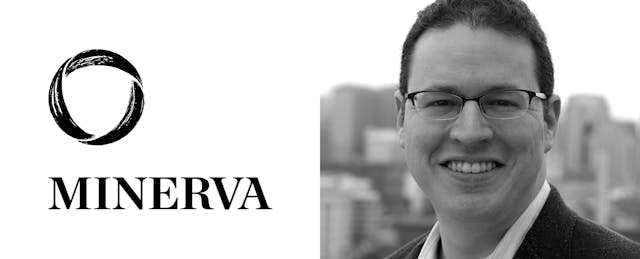The Minerva Project started in 2012 to reinvent American higher education. Lately, that mission seems to be attracting more interest and traction abroad.
Case in point: The San Francisco-based company just raised $57 million in a Series C round led by Bytedance, the Chinese technology giant best known for its video-sharing app, TikTok. Existing investor TAL Education Group, also based in China, chipped in, along with a host of Korean firms including Yongjin Group, Pinpoint Ventures, Kakao Ventures and Lighthouse Combined.
It’s no coincidence that all the investors mentioned in the funding announcement hail from Asia, according to Ben Nelson, founder and CEO of The Minerva Project. “There is a greater appreciation of the potential of education in Asia,” he argues. “They’ve already spawned a number of substantial education enterprises in recent years.”
To date, the company has raised just north of $128 million in venture capital. Its previous fundraise involved some of the same Asian investors in this round as well.
The Minerva Project currently consists of two entities. There is the for-profit part, which goes by the same name, which develops the technology and tools that are tested and used in its nonprofit side, the Minerva Schools at KGI, which offers accredited undergraduate and masters programs that currently serve about 630 students.
Last year, the company began selling its online curriculum and technology platform, called Forum, to other educational institutions. It includes a video tool where students can interact with one another, and which allows instructors to break up large classes into small-group discussions of up to 12 students.
Schools can also choose to use any of Minerva’s 11 pre-built courses, which cover fundamental learning skills such as critical and creative thinking, communication skills and complex modeling. They can adapt and put their own courses and materials on Forum as well.
The company charges a fee based on the number of students and the number of courses they enroll using the platform. Nelson did not share specific pricing details but offered one example: a school with 600 students, each taking 3 to 4 courses per semester using Forum, would pay less than $2,000 per student per year.
Ten clients have signed up so far, according to Nelson. At least three of those are located outside the U.S., including the Hong Kong University of Science and Technology, SRM University AP, Amaravati in India, and “a company in Korea that is using our tools for executive-education programs.” Another is the Oxford Teachers Academy, based in East Palo Alto, Calif.
What’s missing from the list of institutions he named are U.S. colleges and universities, despite the fact that “those who attend our presentation sessions are universally impressed,” Nelson says. Winning over a cross-section of faculty remains a challenge, he admits. For the naysayers, he does not mince words: “Faculty who have not seen it are not interested,” he charges, asserting that “there is a resistance among a segment of the faculty when it comes to deploying new things that will take effort.”
Nelson also doesn’t expect to sell the platform universally. He says Forum is designed to support an “active-learning” pedagogical approach where an instructor (or a TA) engages every student and provides timely feedback. And, most importantly of all, “no lecturing.”
A little more than half of the $57 million in new capital will support the company’s effort to continue developing and selling Forum, according to Nelson. On this front, Bytedance could play a key role. In addition to leading this latest investment, its founder and CEO, Zhang Yiming, is joining Minerva’s board of directors. (Wendy Kopp, who founded Teach for America, is another new addition to the board.)
“There is a recognition in China that artificial intelligence and education are inextricably linked,” says Nelson, adding: “There’s going to be a lot of collaboration between us in the coming years.” Automatic-grading tools were one area that he offered as an example of the kinds of AI-assisted tools that would make sense to develop.
The rest of the investment will go toward Minerva’s nonprofit school operations. So far, the for-profit side of the company has funded that part, but “now we are in a separation phase where the schools will soon be operating independently from the company.”
That means The Minerva Project will not provide additional funds to support Minerva Schools at KGI. The school is looking to separately raise $50 million to support its transition to a fully distinct operation, and is in the process of obtaining its own accreditation. (It is currently accredited through a partnership with the Keck Graduate Institute.) Once those tasks are completed, the school will also get a new name: The Minerva Institute.
This move bears some resemblance to another recent development in the education technology industry. AltSchool was another highly-funded edtech startup that created schools to test its tools, and which recently spun off its school operations to focus on selling software.
The Minerva Schools at KGI graduated its first class of 106 graduates earlier this summer, and continues to attract a steady volume of applications from around the world. Billed initially as an Ivy League alternative, the school has become even more selective than the Harvards of the world: Admissions rate are currently at 1.2 percent, Nelson says.


